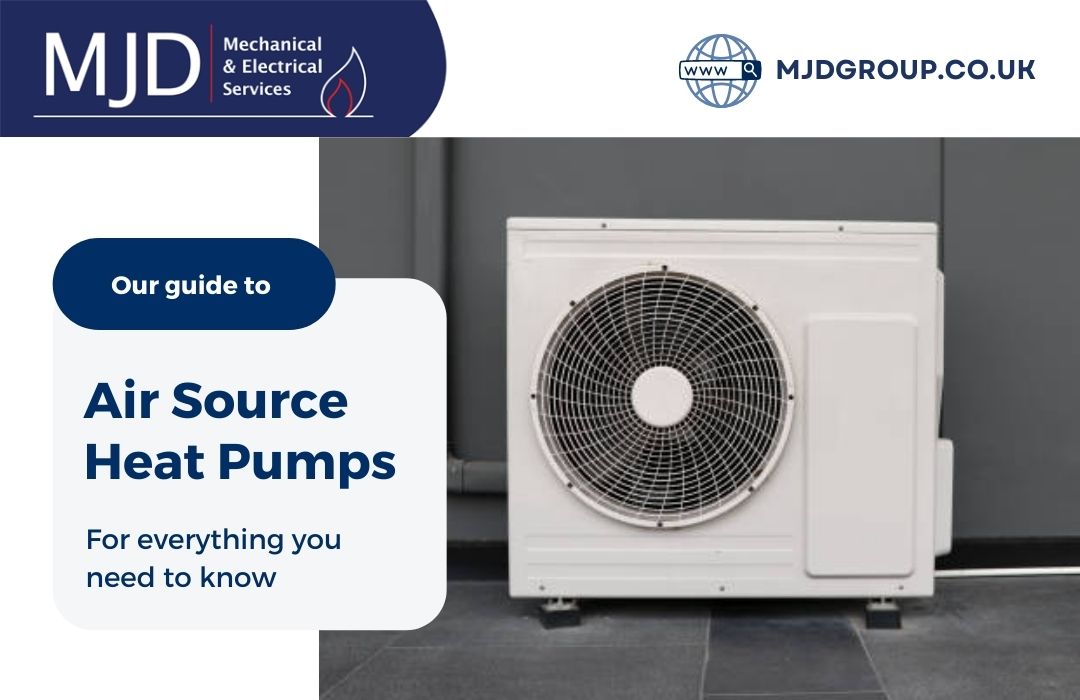A guide to Air Source Heat Pumps
Air source heat pumps are a sustainable and energy efficient alternative to gas fired boilers. They are now being used to replace traditional boilers in many new homes as they provide heating and hot water using the air outside rather than fuel helping to reduce carbon emissions.
This guide will explain everything you need to know, we’ll cover all the key areas including cost, how they work, the different types and their pro and cons.
How do they work?
An air source heat pump is a reversible heat pump that uses the heat from the air outside and boosts it to a higher temperature using a compressor. It then transfers this heat to warm radiators and provide hot water. The system consists of two units, the heat pump that sits outside the building and takes heat in from the environment and an internal module that houses the parts required to transfer heat to the central heating system. Their size depends on how much heat they’ll need to generate for your building – the more heat, the bigger the heat pump, for larger commercial buildings you may need more than one unit.
What are the running costs?
As they use the air outside to generate heat rather than being reliant on fossil fuels, the only things you will be paying for are the installation, unit and the electricity needed to power it. They are much more energy efficient than traditional gas powered boilers but the difference in running costs can vary greatly depending on the type of system you are comparing it to.
According to the Energy Saving Trust website based on an average 4 bedroom detached home air source heat pumps are generally around £920 to £1300 cheaper to run per year than old LPG boilers or electric storage heaters. They are between £315 and £560 less expensive to run each year than old gas boilers, new electric storage heaters, and new LPG boilers. And roughly the same as new gas or oil boilers.
Heating a building with an Air Source Heat Pump
Air source heat pumps heat the water within your central heating systems but they do not reach the same temperatures as a gas fired boiler. Because of this they are best suited to large radiators and underfloor heating that can heat a home slowly over a long period of time. This low-temperature heating will also mean the building needs to be well insulated.
Are they noisy?
All heating products make some noise. Air source heat pumps are generally quieter than gas boilers. The noise they will make depends on the size and model of the heat pump and the temperatures outside. If working effectively they shouldn’t make more than a low whirring noise. Many modern models are designed to make less sound, with thicker cases and quieter fans.
Types of Air Source Heat Pumps
Air-to-Water
There are two types of air source heat pumps; air-to-water and air-to-air, air-to-water is most commonly used in the UK. With air-to-water heat pumps water is heated up in a heat exchanger before passing onto a wet central heating system. An air-to-water heat pump will provide a building with hot water as well as heating.
Air-to-Air
Air-to-air heat pumps are less common in the UK. They work in the same way as air-to-water heat pumps but rather than heat up water in the heat exchanger they heat up air and feed it into your home through fans. They cannot be used to provide hot water but they can be reversed in the warmer months and be used as an air conditioner.
The pros and cons
Pros
Energy Efficient
Could save you money on heating compared to some older systems
Less disruptive than fitting a ground source heat pump
Little maintenance is required, and they last a long time
Air to water pumps can provide both heating and hot water
Cons
They take up outdoor space
More expensive to install than a conventional boiler
Good insulation is required
What are the alternatives?
There are many other sustainable heating solutions available. Another option is ground source heat pumps, ground source heat pumps are similar to air source heat pumps but rather than use air, they use the warmth that comes from the ground.
For more information on sustainable heating please contact our team at MJD we will be happy to discuss this with you and answer any question you may have.

